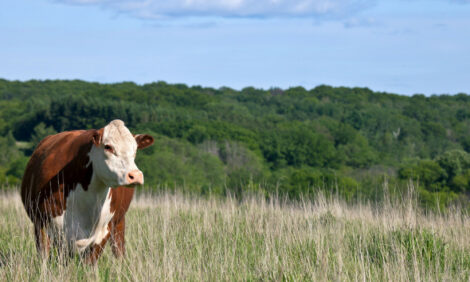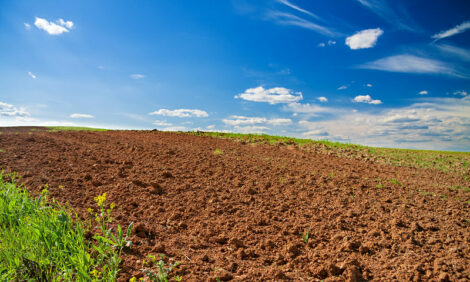



Feedlot Assessment Shows Kansas Cattle Are Handled Safely
US - A recent study by Kansas State University’s Beef Cattle Institute indicated that most Kansas feedlots are handling cattle in a low stress, humane manner and have protocols in place designed to ensure beef safety.“Last year the Beef Cattle Institute and the Kansas Beef Council partnered to host seven meetings across the state which resulted in nearly 1,200 beef producers and veterinarians becoming Beef Quality Assurance Certified,” said Dan Thomson, professor in K-State’s College of Veterinary Medicine and director of the BCI.
During the sessions, participants were trained in areas of low-stress cattle handling, antibiotic residue avoidance, cattle comfort, food safety, downed animal care, preconditioning practices and other areas of feedlot, cow/calf and stocker cattle production. The participants also took part in a necropsy wet lab which led to discussions on disease control and treatment programs for cattle.
“This program has developed into an annual event and we are already planning the sessions and locations for next summer. We are very thankful for the support and partnership with the Kansas Beef Council and the Kansas Livestock Association,” said Dan Thomson, who serves as the animal welfare adviser to McDonald’s and the Food Marketing Institute and has chaired the World Organization for Animal Health’s Beef Cattle Production and Animal Welfare Committee.
Training of individuals on best management practices in the beef industry is a focus of the BCI. After the training sessions, a team of scientists and graduate students from K-State’s College of Veterinary Medicine and Department of Animal Sciences and Industry conducted a follow-up “on farm” assessment of animal welfare and food safety practices on Kansas feedlots.
The goal of the study, which was funded by the Kansas Beef Council, was to use a new Feedlot Beef Quality Assessment tool developed by veterinarians, animal scientists and producers to assess activities related to cattle handling and comfort, antibiotic residue avoidance, employee training and other areas of cattle feeding in respect to food safety and animal welfare.
K-State experts visited farms to assess how they handled those activities, including the condition of feed bunks and water tanks, protocols for emergency preparedness and issues surrounding food safety such as accurate treatment records and drug residue avoidance programs.
Dan Thomson said the BQA program has evolved and encompasses everything from how to prevent antimicrobial residues to making sure cattle producers are producing safe, wholesome beef from cattle raised in a humane manner.
TheCattleSite News Desk


